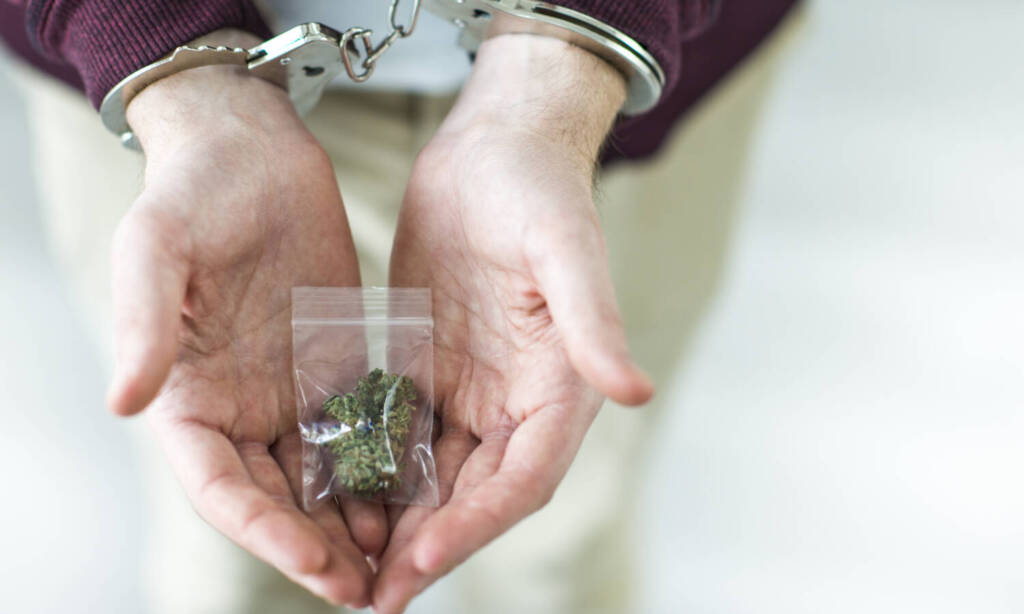
7 common myths about marijuana debunked
As marijuana becomes more mainstream, so do myths and legends. Mistakes and falsehoods about marijuana have existed as long as its opponents. However, the main difference between then and now is legalization and popularity.
More data and refunded research have resulted in scientific evidence that will help shed light on how marijuana actually affects people and society. As weed becomes legal and the states that legalize it continue to function normally, many skeptics are beginning to realize that some of the great myths about marijuana are just that – myths.
Marijuana use causes cancer
The research and study of how marijuana affects or contributes to cancer is still very new and overall inconclusive. Although marijuana has been shown to be helpful therapy for those undergoing cancer treatment, it is still unclear whether or not marijuana causes cancer.
Photo by Kampus Production from Pexels
RELATED: Science Continues to Confirm that Cannabis Fights Cancer
A 2006 UCLA study concluded that marijuana cannot be conclusively linked to the development of cancer. Indeed, tHis and other studies suggest that pot can actually stunt the growth of cancerous tumors. “
Grass isn’t as strong as it used to be
There is a widespread rumor sometimes spoken among the older generations, many of whom are Reformed marijuana users, claiming that marijuana potency has decreased. It cannot be denied that the way cannabis is grown in this country has changed dramatically.
Marijuana was illegal and often grown on farms in the 1960s, and today it’s a multi-billion dollar industry in the United States.
RELATED: Study Shows Marijuana Is 25% More Potent Now Than It Was Five decades ago
“Reports suggest that the potency of the cannabis preparation has increased,” said the National Center for Biotechnology Information. These and other studies indicate that the overall potency of marijuana increases, not decreases.
Marijuana use leads to addiction
Marijuana addiction is an often controversial concept. Marijuana can cause a marijuana addiction disorder, which can lead to addiction. Cannabis was found to be far less addicting than most other drugs, but still addictive to some users.
RELATED: Is Marijuana Addicting? Let’s discuss
The hardest part about understanding marijuana addiction is the fact that this particular addiction is difficult to quantify and identify in many users. “Estimates of the number of marijuana addicts are controversial, in part because epidemiological studies of substance use often use addiction as a proxy for addiction when it is possible to be dependent without being dependent,” said the National Institute on Drug Abuse.
Marijuana is a “gateway” drug
The term “gateway drug” has been used by opponents to define marijuana for decades. “Scientists long ago gave up the idea that marijuana users would try other drugs,” she said TIME.
 Photo by FilippoBacci / Getty Images
Photo by FilippoBacci / Getty Images
According to a 2018 article published in Drug And Alcohol Review:
“With cannabis legalization expanding across North America, it is encouraging that cannabis use in this cohort has been linked to a slower time to start drug use. This finding challenges the view of cannabis as a gateway substance that accelerates the transition to harder and more addictive drug use. “
RELATED: Science Proves Marijuana is not a gateway drug, and it never was
While the term “gateway drug” exists in relation to marijuana, more and more research shows that it just isn’t true.
Marijuana is all natural
Marijuana is a plant that can grow naturally and wild in several areas in the United States. However, most of the cannabis that is consumed is not entirely natural. Cannabis plants are often exposed to pesticides, growth hormones, and other chemicals as they grow. According to Healthline, “unnatural – and most importantly, unsafe – toxins can sometimes appear in cannabis.”
Marijuana leads to violent crime
Marijuana is also associated with crime, particularly violent crime, by many of its opponents. With marijuana now legal in several states, data is available to determine whether there is a strong link between violent crime and marijuana use. There is not.
RELATED: Study Finds No Link Between Marijuana Legalization And Crime
A 2019 study funded by the National Institute of Justice found that legal cannabis had little to no effect on crime. According to the study, both violent and property crime rates in Washington and Colorado remained near the average for other states after 2014, the year that both states’ marijuana programs took full effect. Another study found that “adding a pharmacy to a quarter (with a population of 10,000) reduces changes in crime by 19% compared to the average monthly crime rate in a census area”.
 Photo by FatCamera / Getty Images
Photo by FatCamera / Getty Images
RELATED: Can Marijuana Really Cause A Person To Become Aggressive?
In fact, a 2018 study published in Police Quarterly found that police in states that have legalized marijuana are solving more non-drug-related crimes now that they are exempt from dealing with pot offenders. Police officers in legal states are now more efficient at bringing violent criminals to justice, as well as those associated with theft and break-ins. In other words, the police are legal, states are starting to do their jobs.
Legalization has been a public health disaster
As states began legalizing marijuana, there were many cautionary stories and blanket statements in apocalyptic terms. The end of the days was near in the eyes of extreme cannabis opponents. Of course, this did not happen.
The Washington Post cited research by economists examining the consequences of legalizing marijuana: “They found little evidence that recreational marijuana laws lead to greater drug use among teenagers, but strong evidence that adolescents who use marijuana do , less likely to consume alcohol. “

Post a comment: